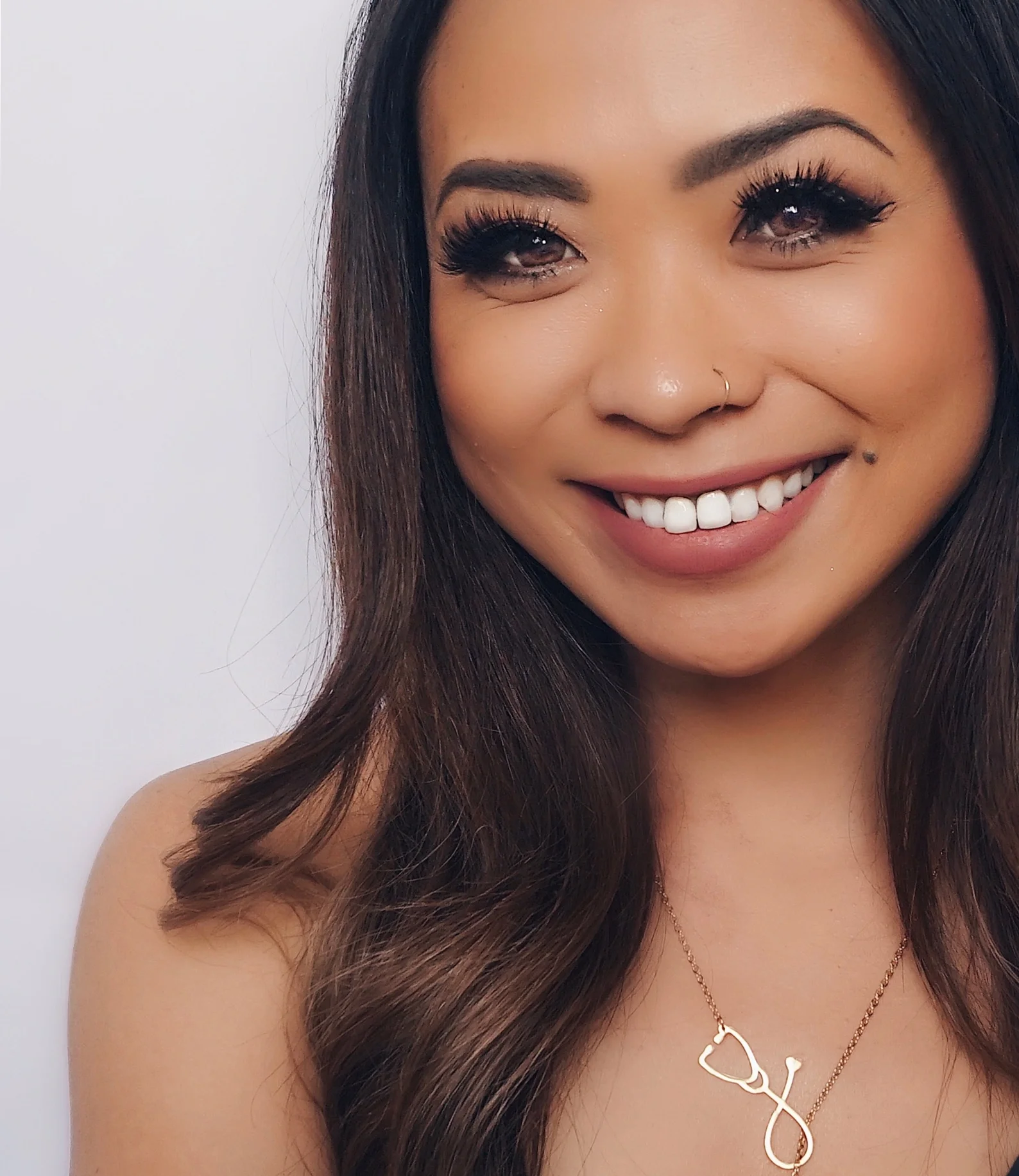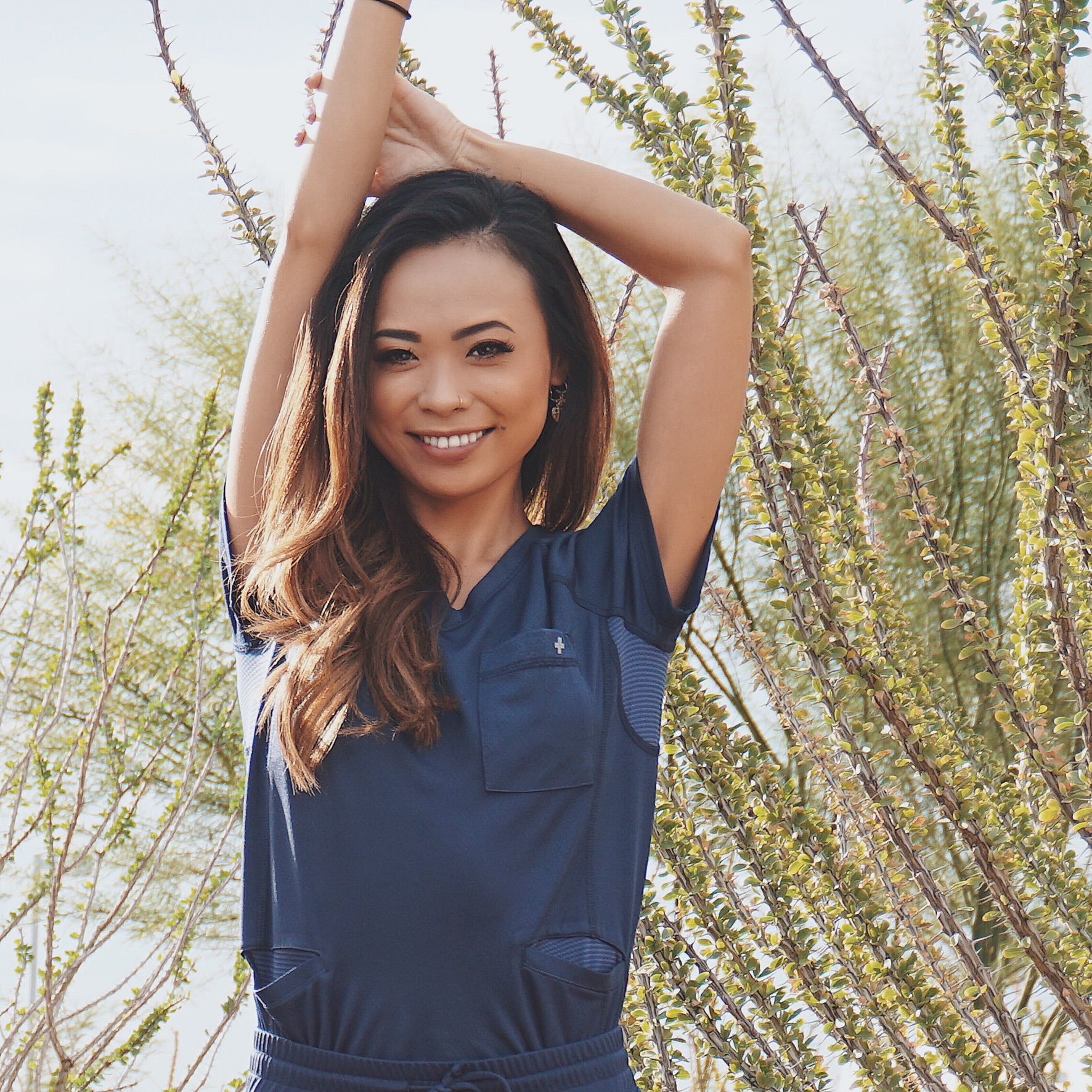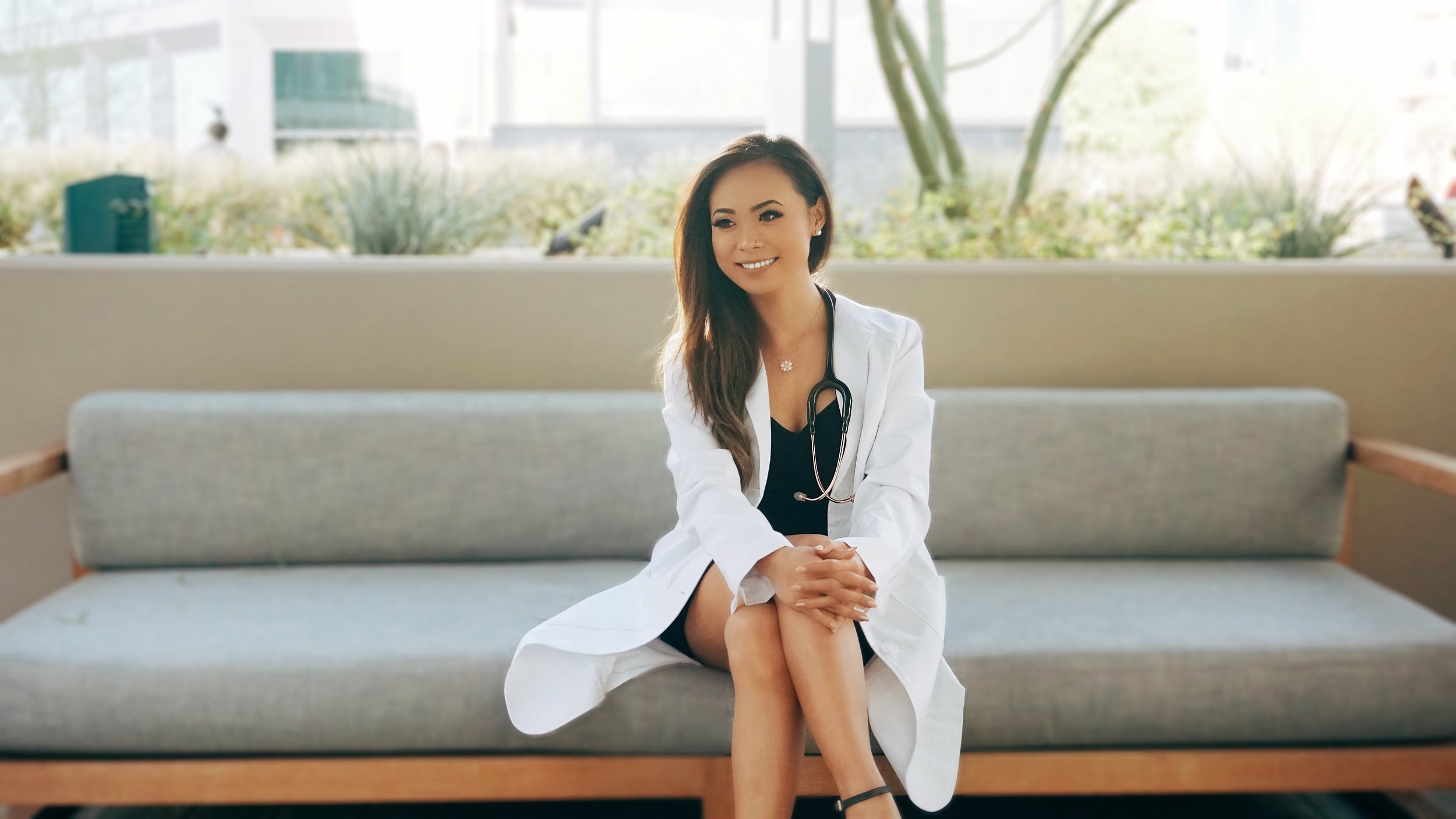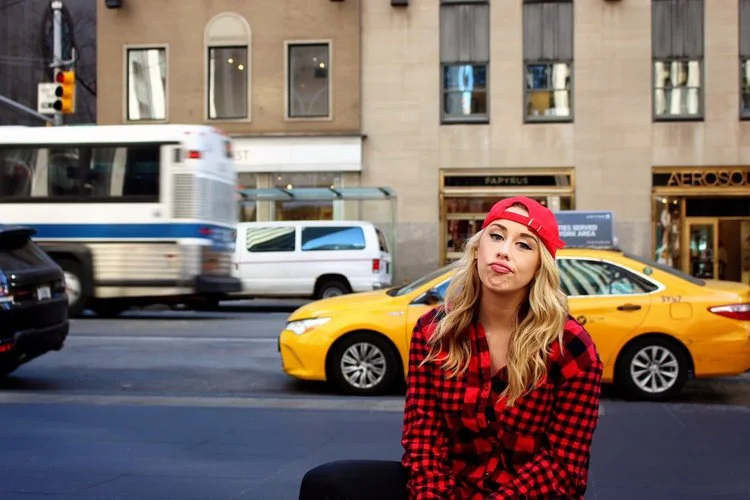BABE #179: YUNA LUNA, Nurse, Banner Health
Our team first discovered Yuna in the truest millennial fashion — via the art of perusing social media — and were instantly inspired by the ways she described her genuine dedication and passion for what she does. Yuna is a Nurse at Banner Health in Arizona, taking care of her patients by night and hustlin’ towards her doctorate to become a Nurse Practitioner by day. (Where she finds time to sleep in-between is a mystery to us.) In today’s interview, Yuna shares her journey to becoming a nurse, the not-so-pretty parts of the career path, and the reasons that make those parts worthwhile.
The Basics:
Hometown: Japan, Hong Kong; Thailand; San Francisco (Bay Area)
Current city: Phoenix, Arizona
Alma mater: Sonoma State University, University of San Francisco, Arizona State University
Degree: B.A in biology; Master of Science in Nursing (MSN), Clinical Nurse Leadership; Doctor of Nursing Practice, Family Nurse Practitioner (FNP)—in progress.
Very first job: Sales associate at Aeropostale
Hustle: Nurse, Banner Health
The Interests:
Babe you admire and why?
I admire the experienced nurses that I work with. They shared their knowledge and gave me guidance with patience and kindness when I first started working as a nurse on the floor. I know training a new nurse—especially under a lot of pressure, while taking care of patients—isn’t the easiest thing, but they continuously motivate and encourage other nurses to be compassionate nurses with good assessment skills.
How do you spend your free time?
It’s been a while since I’ve had some free time because of work and study towards my doctorate, but I enjoy exploring Arizona. I moved here two years ago and it has so much to offer. Sedona is one of my favorite places of all time. I like to drive there just to relax and climb Cathedral Rock. Watching the sunrise from the top of rock is breathtaking. Social media marketing (promoting local businesses and collaborating with different artists) is also something I’m involved in. Last, but not least, painting—something I wish I had more time to do like I did when I was young, as it accompanied my growth and journey throughout.
Go-to news source?
Google News and NPR.
If you could have coffee with anyone in the world, who would it be?
My grandfather, who passed away when I was a teenager. He was always the one to tell me: “Anyone can take your status or money away, but nobody can take your knowledge away. Feed your brain; that’s the best investment you can make for yourself.” He came from nothing and became successful by working hard. What I really respected about him was that he remained very humble and took care of his family first, before his needs. If I could, I would like a nice cup of morning coffee with him, and I want to just share what I’m learning in school or at work and all about my patients. He always loved expanding his knowledge.
The Hustle:
Tell us about your hustle.
I’m a bedside nurse at the Banner Health's university medical center. I take care of sick people at night and I’m a doctorate-NP student during the day. I work at the department that specializes in plastics, wounds and respiratory. I take care of people with a wide range of diagnoses, especially people with cystic fibrosis, trauma, wounds and people who are paraplegic or quadriplegic. As a nurse, I assess patient health, monitor labs, review charts and orders, give necessary treatments, collaborate with other healthcare professionals, advocate for my patients' needs to providers and educate patients and their family members about their care, diseases and treatment plans.
What does your typical workday look like?
Every day is completely different. One thing about nursing is that you never know what to expect, and you learn something new every day. It can be both exciting and challenging, but very satisfying. Some nights we constantly run around while taking care of patients who are deteriorating into a critical condition. Some nights we have some time to have nice conversations and hear about patients’ life stories. As a nurse, you have to serve many roles. We are advocates to speak up for our patients. We are educators, not only to our patients but to colleagues and other healthcare professionals. We are collaborators, who facilitate multidisciplinary treatment to make sure everyone is on the same page. We are the shoulders you cry on when you feel vulnerable, and sometimes we are the fierce caretakers who stand by you when you go through painful and uncomfortable days and nights.
How long have you been interested in nursing?
I was born in Japan and raised in Hong Kong, Thailand and the San Francisco Bay Area. Growing up, I would’ve never thought about becoming a nurse or nurse practitioner. My dream as a little girl was to own a flower shop. I spent a lot of time in the library burying myself in books, which made me want to become a journalist documenting people’s lives and world affairs as I traveled. While living in different countries, I faced socioeconomic differences, inequalities and inadequate government responses to people’s needs. I learned how privileged my life was, residing in those countries as a “foreigner.” So, I chose sociology as my major in hopes of becoming a social worker. However, something was lacking, and I had this strong desire to interact with people in different settings, cultures and places. I wanted hands-on skills I could utilize everywhere in the world and I realized I was craving pure and compassionate human interactions. That’s when I switched my major from sociology to biology, realizing that human bodies function in the same way, regardless of differences in languages, religions or cultures. After exploring my options through internships (clinical lab, domestic violence shelter, hospitals, etc.), I was drawn to how strong nurses were—they showed me what it meant to do what’s right for patients under difficult circumstances, even when patients were uncooperative; even when circumstances required them to stand up for patients; or even when they missed their lunch or bathroom break during their 12-hour shift, just so they could make sure their patients were OK.
What’s something everyone should know before becoming a nurse?
Nursing isn’t just about passing meds and performing skills you learn in school. I believe the real learning starts when you actually start taking care of your own patients, when their care and lives are in your hands. It’s about having an ability to be empathetic—to see things from patients’ perspectives regardless of what you believe in. You are constantly surrounded by sadness, anger and frustration. This job can be physically, mentally and emotionally demanding. But know that it’s also the profession where you can be the reason for people to believe in the goodness of world.
How have your past professional and academic experiences prepared you for the work you do today?
After I earned my Bachelor's in biology, I worked at outpatient clinics while completing internships at ED and applied to entry-level master of science in nursing (MSN), specializing in clinical nurse leadership (CNL). I graduated with MSN-CNL degree, RN license and as a certified public health nurse (PHN-C). Every single experience I’ve had in my life has helped me to become a nurse and prepared me to become a nurse practitioner. I learned so much about cell and molecular genetics of all animals during my undergrad while pursuing biology degree, which helps me understand pathophysiology and human body reactions. I’ve also done multiple internships, such as working with people who are homeless and women with history of domestic abuse at the transition house, clinical laboratory intern to perform simple lab tests, student interns at the hospital, etc. My jobs previously—from sales associate at the mall, to administrative assistant at the student health center, to medical assistant at clinics, to working at hospitals, all helped me learn to become a team player and gave me an opportunity to see different sides of health care.
What’s your perspective on the American healthcare system?
I recently watched the TED Talk called “What if we paid doctors to keep people healthy?” by Matthias Müllenbeck, and I agree with his viewpoint wholeheartedly. He talked about how it’s beneficial for all of us to shift the healthcare system from “sick care” to a true “health care,” where we focus on preventive medicine—which is to preserve the health of healthy people before they become sick, instead of treating them after they become sick. The system we have right now is based on the fee-for-service model, where providers get reimbursed for the numbers and types of treatments they perform on patients. But what if providers get reimbursed for keeping individuals healthy to ensure everyone is accountable for everyone’s health? This requires thoughtful and collaborative approach to reframe the system, together with insurance companies, policy makers and patients themselves. I believe this is such a positive way to look at health care.
How has being a woman affected your professional experience?
Many people still believe nursing is a field for women, but I’m glad the perception has started to change and there are more male nurses. I read one of the studies that said nursing is one of the most dangerous professions. It requires a lot of skills and it also requires us to be able to handle situations when patients become violent, being exposed to environmental hazards or carry patients who are twice as big as us. Let’s say that regardless of being a male or female, you have to be a tough cookie to be a nurse.
What advice would you give to a babe trying to break into your industry?
I understand that nursing programs can be demanding in many ways, because you have to be flexible and you have to do well in both academics and at clinicals. There will be many stressful days and nights studying for exams, applying for new grad jobs or thinking about your patients and what you might have missed. You’ll have nightmares about it. But know that you learn from your mistakes and that won’t be a reason to stop. We all make mistakes. I’ve made a lot of mistakes in my life, but after 10 years of relentlessly pursuing and studying, I’m finally studying to become a nurse practitioner. I didn’t take a traditional route to become a nurse, but I don’t regret doing anything I’ve done in my life. Know that everything you do in life will help you gain perspective and be more understanding towards others. One thing I learned throughout this journey is that we can never let the world make us hard. We always have to remember to stay soft—but not naive.
Career and/or life advice for other babes?
“My mission in life is not merely to survive, but to thrive, and to do so with some passion, some compassion, some humor and some style.” —Maya Angelou
In partnership with: Warby Parker
Revolutionizing the eyeglass industry, Warby Parker designs an in-house, trendy and socially conscious collection, providing high-quality, better-looking glasses at a fraction of the going rate. Our favorite part of WP? Their Home Try-On Program, where you can select 5 different frames online, have them delivered to your door, take 'em for a spin, pick out your faves, then send them all back - all before spending a dime. Learn more about it here.
*This is an affiliate partnership. That means when you shop using our links and codes, a portion of your purchase goes right back to us, so we can then roll out some awesome new things for you. Of course, we only promote hand-selected brands and products that we stand behind and know you will enjoy.Interested in advertising with us? Email us.










